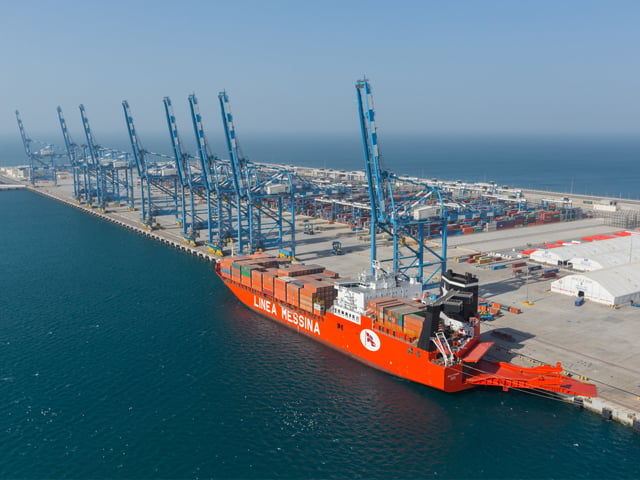———– Pakistan’s 1001 km coastline hosts diverse marine species, plants, and valuable mineral resources, says British Diplomat
From Zeeshan Mirza
KARACHI: The British Deputy High Commissioner in Karachi, Sarah Mooney, said that incorporating the blue economy into the national economy is of utmost importance for a country like Pakistan. She stated this while addressing the World Maritime Day 2024 seminar as the chief guest, organized by the Directorate of Electronic Media and Publication (DEMP) in collaboration with the Maritime Training Institute at a local hotel on Thursday.
Sarah Mooney highlighted that Pakistan’s 1,001 km coastline is home to various marine species, plants, and mineral resources. She noted that the blue economy has not been fully utilized, despite its potential to generate revenue exceeding $100 billion.
Director General of the Press Information Department (PID), Erum Tanveer, emphasized Pakistan’s unique geographic position, bridging the East and West, with its warm, deep-water ports and a 1,000 km-long coastline. This, she said, places Pakistan at the centre of global maritime affairs while also highlighting the challenges the country faces in a rapidly changing climate.
She further explained that climate change is a global challenge with profound implications for oceans, coastlines, and communities. As a responsible member of the international community, Pakistan has introduced several national policies, such as Blue Economy initiatives, including sustainable fisheries, marine renewable energy, and marine biodiversity conservation. These policies aim to safeguard the environment and promote sustainable development. For instance, the National Forest Policy of 2015 aims to increase forest cover and mitigate the impacts of climate change, aligning with Pakistan’s commitments to the Paris Agreement and the Sustainable Development Goals (SDGs).
DG PID also mentioned that the Ministry of Information and Broadcasting plays a pivotal role in supporting these national efforts by fostering an informed society and advancing media development. Through the PID and DEMP, vital information on government policies, achievements, and programs is disseminated, building a positive narrative about Pakistan domestically and internationally. DEMP is instrumental in producing, archiving, and distributing documentaries and publications that serve as valuable resources for the global community. The News Analysis Center monitors over 50 TV channels simultaneously, ensuring accurate and timely dissemination of information.
Referring to the documentary presented at the event, she stated, “We proudly launch a new documentary that underscores the significance of preserving our mangrove ecosystems, a critical part of our coastal heritage. Mangroves act as natural barriers against storms, protect against coastal erosion, and serve as vital carbon sinks, playing a crucial role in mitigating global climate change.” She added that the documentary aligns perfectly with the theme of World Maritime Day, reinforcing the twin pillars of safety and sustainability.
She extended her gratitude to the Pakistan Branch of the Nautical Institute, the Institute of Chartered Shipbrokers, the Chartered Institute of Logistics and Transport, and the Pakistan Merchant Navy Officers’ Association for their efforts in organizing the seminar.
Video messages from international maritime personalities were also played at the event. In his message, Secretary-General of the International Maritime Organization (IMO), Arsenio Dominguez, highlighted the importance of this year’s World Maritime Day theme, “Navigating the Future: Safety First!” He emphasized that maritime safety is not just a regulatory requirement but a fundamental aspect of the global economy, with over 80% of the world’s goods transported by sea annually.
Dominguez praised the advancements in maritime safety, particularly the modern fleet of vessels operating under IMO guidelines, and acknowledged the ongoing challenges requiring continuous improvement. He concluded by urging the maritime industry to embrace innovation and maintain a focus on safety, ensuring secure maritime transport for future generations.
Messages from the Chief Executive of the Nautical Institute, Capt. John Lloyd, and the President of the Institute of Chartered Shipbrokers, Kevin Shakesheff, were also shared.
In his keynote speech, CEO of Seacare Pakistan and Vice Chairman, Capt. Ali Asghar Khan, highlighted the significance of Maritime Day.




